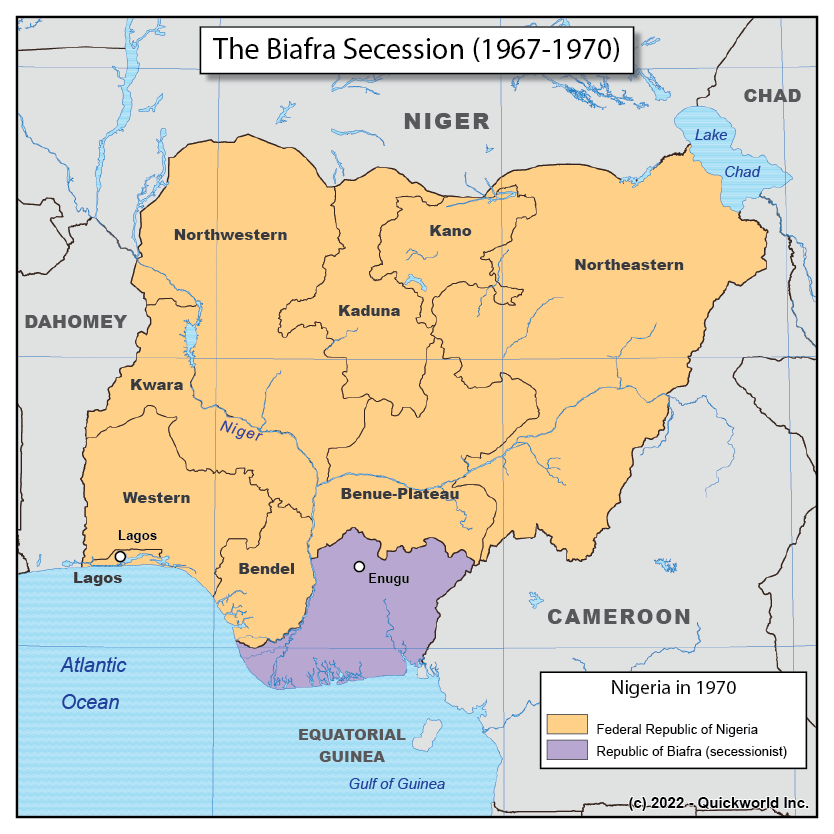Our series on 20th Century Conflicts takes us to Western Africa, where an ethnic conflict split the country of Nigeria for a few years.
Nigeria had been a group of British colonies that were joined into a federation and granted independence in 1960. The dominant ethnic group, the Hausas, were Muslims and controlled the Northern States of the country as well as the federal government. In the Southeast, the Igbo ethnic group was Christian and resented the limited role they had in the Federation. The Igbo declared independence in 1970 as the Republic of Biafra, located on the resource-rich Niger Delta. The war that followed was brutal, with one of the largest displacements of civilians and famine induced casualties: 2 million people died and up to 4 million were displaced, in a conflict that generated much international outcry but little intervention.
After three years of war, the federal government prevailed and reconstruction was sped up by the first oil shock, which provided a lot of US dollars to Nigeria. However, ethnic tensions have prevailed in Nigeria since then and, as of 2022, separatist sentiment is still high in Biafra.
More on Biafra
The Biafra Secession


